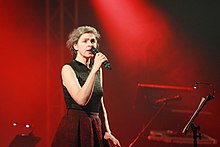
Anúna is a vocal ensemble formed in Ireland in 1987 by Irish composer Michael McGlynn under the name An Uaithne. Taking the current name in 1991, the group has recorded 18 albums and achieved a high level of international success, including a significant role in Riverdance from 1994 to 1996. Almost all of their repertoire is composed or arranged by McGlynn. Despite having been based in Ireland since their foundation and providing training to many Irish singers, McGlynn announced in December 2022 that the group would cease public performance in Ireland, while continuing in Northern Ireland and beyond.

Qntal is a German "electro-medieval" band founded in 1991 by Michael Popp and Ernst Horn. They later added vocalist Syrah to complete the band.

Deine Lakaien is a German band project active since 1985. It is formed by the vocalist Alexander Veljanov and by the composer and multi-instrumentalist Ernst Horn. The group unites influences from dark wave with pop music and elements of avant-garde.
Sequentia is an early music ensemble, founded in 1977 by Benjamin Bagby and Barbara Thornton. The group specializes mainly in Medieval music. Sequentia focuses particularly on music with texts, specifically chants and other stories with music, such as the Icelandic Edda. They are interested in the interplay between drama and music, and sometimes do partially staged performances, such as that of Hildegard of Bingen's Ordo Virtutum. Bagby and Thornton have both been active in original research on the projects they perform.
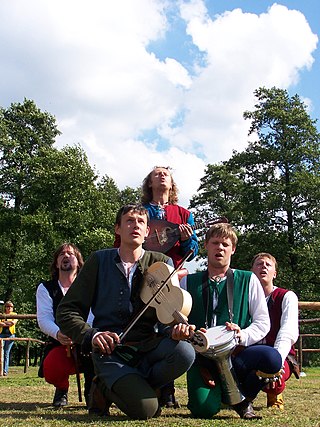
Drolls is a Russian early music ensemble formed in 1999 and playing its own interpretation of Medieval and Renaissance music, using authentic instruments. The name of the ensemble refers to a droll - a short comical sketch of a type that originated during the Puritan Interregnum in England. Although their main repertoire consists of music and songs from across the Europe, they also sing and play music of skomorokchs.
Silence is a Slovene electronic, synthpop and soundtrack music composing duo consisting of Boris Benko and Primož Hladnik. Their fanbase and their tours are currently limited to Slovenia, Germany and parts of Eastern Europe. Outside the region, the band is probably mostly known for the album Vain, A Tribute To A Ghost and their collaboration with Laibach on the album Volk in 2006.
Morris David Brough Pert was a Scottish composer, drummer/percussionist, and pianist who composed in the fields of both contemporary classical and jazz-rock music. His compositions include three symphonies, piano music, chamber and solo instrumental music, choral music and "sonic landscapes" for electronic media; a late major work is "Ankh" for Carnyx and electronics written for eminent trombonist John Kenny.

Estampie is a German music group, founded in 1985 by Sigrid Hausen, Michael Popp and Ernst Schwindl. The band plays primarily medieval music, with some modern influences from world and minimalist music.

Ernst Horn is a German musician who played a crucial part in founding the bands Deine Lakaien, Qntal and Helium Vola.
Medieval folk rock, medieval rock or medieval folk is a musical subgenre that emerged in the early 1970s in England and Germany which combined elements of early music with rock music. It grew out of the British folk rock and progressive folk movements of the late 1960s. Despite the name, the term was used indiscriminately to categorise performers who incorporated elements of medieval, renaissance and baroque music into their work and sometimes to describe groups who used few, or no, electric instruments. This subgenre reached its height towards the middle of the 1970s when it achieved some mainstream success in Britain, but within a few years most groups had either disbanded, or were absorbed into the wider movements of progressive folk and progressive rock. Nevertheless, the genre had a considerable impact within progressive rock where early music, and medievalism in general, was a major influence and through that in the development of heavy metal. More recently medieval folk rock has revived in popularity along with other forms of medieval inspired music such as Dark Wave orientated neo-Medieval music and medieval metal.

The Amphi Festival is a music festival that has been taking place since 2005 featuring a wide-ranging program for a heterogeneous audience, albeit primarily fans of alternative, electronic music, and dark music. The number of visitors to the event in 2009 was 13,000 per festival day.
Mark Andre is a French composer living in Germany. He was known as "Marc André", his birth name, until 2007, when he formally revised the spelling. He lives in Berlin. Andre's compositions durch (2006), ...auf... III (2007), and Wunderzaichen (2014) received multiple votes in a 2017 Classic Voice poll of the greatest works of art music since 2000.
The Ensemble für frühe Musik Augsburg is a German early music ensemble founded in 1977 and specializing in medieval music. The ensemble is regarded as "renowned" in Germany.

In lichter Farbe steht der Wald is an EP released by electro-medieval/darkwave band Helium Vola. It was released November 22, 2004 by Chrom Records.
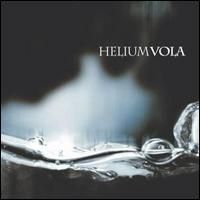
Helium Vola is a studio album by the electronic band Helium Vola. It was released in October 2001 through Chrom Records. The album was re-released with the bonus CD Omnis Mundi Creatura on March 15, 2003.

Omnis Mundi Creatura is a single released by electro-medieval/darkwave band Helium Vola. It was released in 2001 by Chrom Records.
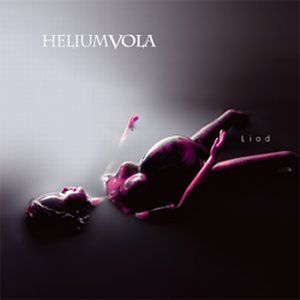
Liod is a studio album by the electronic band Helium Vola. It was released in 2004 through Chrom Records.

Für Euch, die Ihr liebt is a double-CD studio album released by electro-medieval/darkwave band Helium Vola. It was released in 2009 by Chrom Records.
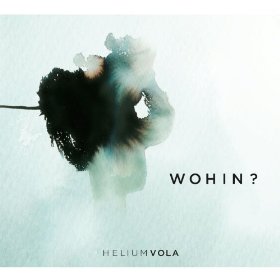
Wohin? is a double-CD studio album released by electro-medieval/darkwave band Helium Vola. It was released February 22, 2013 by Chrom Records.

